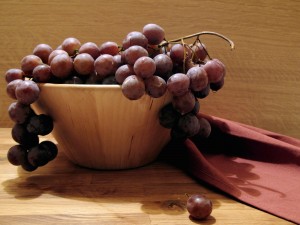 Wine is a very common drink used by many people throughout the globe. It is available in great varieties, each wine having its own unique taste. With the increased interest in organic food, many people are now creating businesses producing and selling organic wines.
Wine is a very common drink used by many people throughout the globe. It is available in great varieties, each wine having its own unique taste. With the increased interest in organic food, many people are now creating businesses producing and selling organic wines.
What is organic wine
Organic wine is produced from grapes which are grown in a natural environment free of any fertilizers, chemicals or pesticides. Organic wine is preferred because of its health benefits, in comparison to more conventionally produced wines. Lots of people use organic wine because they feel that organic foods are more nutritious and tasty, and more healthy than conventionally produced foods.
Every year 1500 to 2000 organic wines are produced throughout the world. In conventional agriculture, various chemicals are used to increase the productivity and these chemicals are absorbed by the roots of the plant which ultimately affect the final product. This chemical activity can affect the structure of the soil, and may percolate into the ground water underlying the vineyard. There are government regulations in many countries, which regulate the whole process of organic wine-making, thus protecting the health of people and safeguarding the environment from potential toxic chemicals
Natural wine making
Many people think that organic wine is another name for natural wine. Although these two types of wines are very similar, there are some differences in their production methods. Organic wine making does not use chemicals to grow the grapes, but it may use micro oxygenation, reverse osmosis, and excessive filtration during the processing of the grapes to make wine.
On the other hand, natural wine making is the purest form of wine making, using only unadulterated fermented grape juice. The grapes are first grown using either organic or bio dynamic methods, and then they are picked by hand rather than by machinery. After picking there is some squashing to produce juice, which then sits in large vats. Whilst in the vats, natural yeasts from the air and the grape skins, will start the process of natural fermentation. During this process there is nothing added, such as oak flavors, or sugar etc. The resultant product contains only the original organic grapes.
Large scale organic wine production
As a result of the increased interest in growing wine organically, and the health benefits associated with organic production, the number of large scale organic vineyards is always increasing.
Due to the environmentally friendly production method, organic wine has been supported by leading people of the world.
Prince Charles says that: “It is vitally important that we can continue to say, with absolute conviction, that organic farming delivers the highest quality, best-tasting food, produced without artificial chemicals or genetic modification, and with respect for animal welfare and the environment, while helping to maintain the landscape and rural communities.”
It is enlightening that some world leaders are promoting the production of organic food. I guess it really is just reintroducing food production as it was 70 – 80 years ago, before the large scale manufacture of agricultural chemicals. We are going the full circle, reusing organic “waste” as a useful input with lots of value.
Sulfites for preservation
Sulfites may be used in both organic and natural wine production. They are added as a preservative and a stabilizer. The amount used in natural wine production is very small. In fact some natural wine makers don’t use any sulfites in their products at all.
For organic wine production there may be a few different categories, depending on the amount of sulfites used in their manufacture.
- The first type of organic wine is called 100% organic as it is made purely from organic grapes, grown organically and there is no sulfite added to the product:
- If there is a small amount of sulfite added, then it is called 95% pure;
- The third category of wine is called 70% pure. It contains organic grapes, but there may be sulfites and other chemicals added during fermentation.
It is always best to read the label on any product that you are going to eat or drink, so you know exactly what you are going to consume. You can then make an informed decision about your purchase. With all food the best quality will always be 100% organic.
Health benefits
There is some discussion about the health benefits of red wine, however the scientific data to support this theory is very limited. The skin of red grapes contains an antioxidant called resveratrol which may improve heart health. However to get enough resveratrol from wine may require drinking large amounts of wine. This large amount of alcohol is certainly not good for the body.